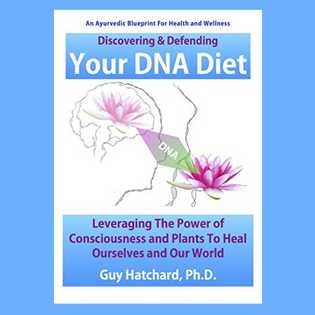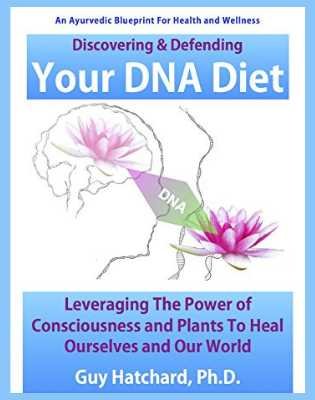This article examines what we know about heredity, health and genetics. It draws out the implications for intelligence and the applicability (or rather risks) of gene editing. We are surrounded by paid content on all media channels misrepresenting the possible outcomes of biotechnology. For example a sequence, produced and aired by the BBC for international audiences was made for a client called the Biotechnology Innovation Organization (BIO). BIO is the world’s largest trade association for the biotechnology industry, representing companies, academic institutions, and other organisations in the US and over 30 other countries. The BBC promo is entitled The Next Frontier which claims that biotechnology is necessary “to address healthcare challenges, unlock nature’s wisdom and support daily life, in order to meet the world’s urgent challenges and create a sustainable future.” Our article today outlines the scientific fallacies being used to promote biotechnology and mislead the public.
My wife’s relatives and our children are tall. Mostly over 6ft. They grew up in the New Zealand countryside, nurtured on fresh farm produce, fresh air and fun. For hundreds of years scientists have been wondering what makes one person tall and another short. It has been known for a long time that height is largely inherited. With the discovery of DNA in 1953, the hunt was on to find out which genes made you grow tall.
Along with this search came a phalanx of writers and media hacks who were prepared to promise that dollars invested in biotechnology experimentation would make us all taller. At the height of the pandemic, mainstream media began to air outrageous claims announcing a new era of health, happiness, longevity, intelligence, beauty and yes even height, all courtesy of biotechnology. According to this narrative, the cure for all diseases, including the big killers cancer and heart disease, was just around the corner.
In 2023, US Journalist Michael Spector talked to Kathy Ryan of Nine To Noon enthusing “how mRNA vaccines have transformed the scientific landscape and helped spark a biotechnology revolution.” Soon, he said, we will be entering an era of personalised medicine and nutrition, all courtesy of synthetic biology. This broadcast was just one of many. TVNZ newscasters were happily promising us all a couple of extra inches, not around the middle, but up top and a few more years to enjoy our retirement.
As it has turned out, excess deaths in New Zealand and many other highly vaccinated nations are still running 5% above the pre-pandemic figures which means that we are living shorter not longer lives and although Hamish Kerr won Olympic gold in the high jump, our height measurements are staying stubbornly where they were. So what went wrong with the predictions of a golden age of biotechnology? As always the devil is in detail. When it comes to biotechnology detail really matters, one genetic sequence in the wrong place can mean the difference between delight and disaster.
In 2018, award winning NY Times science columnist and adjunct Yale Professor Carl Zimmer completed his book She has her mother’s laughwhich examined the evidence for heredity. Zimmer followed the scientific research on height over the course of a 35 page chapter covering 350 years. Back in 2018 Zimmer was able to report that there were 800 genes which played a role in determining our height. Just 4 years later in 2022 scientists at MIT, Harvard, and Boston Children’s Hospital completed an analysis of the DNA of 5.4 million people which found that there are in fact over 12,000 genetic variants which influence our height. In other words, height, like almost all human traits, is polygenic—it develops under the influence of multiple genes which each make a tiny contribution to the ultimate outcome.
Since humans only have about 20,000 genes and our physiology performs trillions of trillions of essential tasks every day it should be clear to everyone that all genes have multiple roles in the physiology. It is also very clear that genetic engineering of humans to become taller is an impossible dream, or rather, if it is ever attempted, will become a nightmare, as all the myriad indispensable other functions of our thousands of multitasking height genes are disrupted with disastrous effects.
But that is not the whole story. All around the world people really are becoming taller, much taller. In 1860 Dutch men averaged just 5ft 7in. They are now the tallest in the world averaging just over 6ft. None of this gain is due to biotechnology, it is due primarily to nutrition—the same abundant good food and fresh air that my wife’s relatives enjoyed when they were growing up. Conversely if you crowd people together in polluted, stressed city environments (as our government’s urban planning regulations are mandating) and feed them poor quality food, people get shorter, as happened during the industrial revolution.
Over time, the genetic basis of height has been able to express itself positively and more fully as a result of more availability and variety of food, reduced stress, increased sanitation, fresh air and reduced pollution. There is a huge lesson for us all here and it is not pointing to personalised gene therapy.
The saga of height is not an isolated story. Intelligence is a human trait that is believed to be 50% to 80% influenced by heredity. We know this is the case because the intelligence scores of identical twins, who share an almost identical genetic profile, are usually closer to each other than fraternal twins who have substantially differing genes. This remains the case even if the twins were separated at birth and thus grow up in differing environments.
As with height, the development of intelligence is believed to be influenced by thousands of genes which each play a tiny role in its development, along with environmental, social, nutritional and educational factors. Curiously, despite years of research, scientists know very little about which genes might influence intelligence and how they do it. In fact, even after research which has attempted to combine the effects of thousands of genetic variants believed to affect intelligence, scientists have only been able to account for a very small percentage (less than 10%) of any variation in intelligence. Thus the idea that gene therapy could enhance intelligence is just as flawed and frankly daft as the dreams of ten foot giants. Worse still, the idea that intelligence is inherited led the Nazis to institute a eugenics programme involving the sterilisation and extermination of those deemed sub-normal.
The story of intelligence doesn’t end there. Surprisingly, studies show higher intelligence increases longevity. Conversely, on average, people with lower intelligence die earlier. The connection is very broad based. A follow up Scottish study conducted over decades found that people who scored in the top 10% on an intelligence test at school age were two thirds less likely to have died of respiratory disease than those in the bottom 10%. They were half as likely to have died from heart disease, stroke and digestive disease. The author proposed that intelligence tests may measure a broad feature of human biology akin to temperature or blood pressure, which he called “system integrity” which could help determine how long the physiology can run before falling apart.
Fortunately for us, intelligence is not necessarily fixed or restricted by our genes, if we do want to become wiser, studies show that transcendental meditation can improve scores on tests of general, fluid and emotional intelligence as well as enhancing academic achievement. Transcendental meditation is a simple process of allowing intelligence or awareness to curve back on itself. A state described in the Bhagavad Gita for example as the established intellect. Thus the failure to pin down the effect of genes on intelligence is actually pointing in an entirely opposite direction. If we give up the entrenched notion that everything is the result of our genes, research and our personal experience points to a different relationship—does our level of intelligence or consciousness control the functioning of our genes?
In this paradigm, whilst it is no doubt still true that Einstein’s parents must have been intelligent, Einstein’s intelligence was his own and he expressed it in every area of his life by virtue of the genes he inherited from his parents and their parents. In other words, consciousness or intelligence is primary and matter secondary. To accept this, it might be necessary to adopt a notion of a soul or of rebirth, ideas that are strongly supported by cultural histories and by verified accounts of those who remember their past lives. But whether we believe this or not, it is true that every mother and father knows that the intelligence of their children differs from their own in key ways. Children seem to bring their own character and nature with them.
Once liberated from the absurd idea that our DNA forms a straight jacket holding us back from achievement and health, that is unless we become a subject of gene experimentation or so-called gene therapy, a much happier prospect of life opens up. One in which we have options to progress. Despite this, most of the population remains trapped in the misleading idea being heavily promoted by biotech PR that life’s hazards and opportunities are controlled and severely limited solely by our genes.
You may remember that Angelina Jolie had her breasts removed because of an inherited BRCA1 or BRCA2 genetic mutation predisposing her to develop cancer. You might be tempted to conclude that cancer is all in the genes. You would be wrong by a considerable margin. Only about 5%-10% of breast cancers are affected by inherited genetic characteristics. The same figure applies to all cancers. As we have previously reported, studies show the best way to avoid cancer lies in a diet containing adequate servings of fresh fruit and vegetables, regular exercise, reduced pollution and reduced consumption of red meat.
Comparable estimates for other illnesses known to be complicated by inherited genetic factors include the following:
- 30% of Heart Disease.
- 50% of Diabetes
- 30% of Anxiety and Depression
- 5%-10% of neurological conditions like Alzheimer’s, Parkinson’s and Sclerosis
Despite the fact that genetic factors are partially involved in these conditions for some individuals, these factors are overwhelmingly polygenic and thus not amenable to gene therapy solutions. However, the incidence of the majority of disease is known to be highly positively influenced by lifestyle choices which are cost effective and free of side effects, unlike commonly prescribed pharmaceutical drugs which usually come with significant risks and effect sizes many times lower.
The New Zealand government is planning to deregulate biotechnology apparently because Attorney General Judith Collins and Minister of Science Innovation and Technology Shane Reti, along with most other MPs, believe the fantastic tales of spin doctors angling for grants and investment to fund their addiction to fiddling with genes. We now know from the experience of the last five years and published findings in scientific papers that the probable outcome of such legislation will be another bumper crop of ill health, frustration, economic mayhem and death. It is time to wake up from the dream and face reality.
Rather than promising miracle cures, there are tried and tested ways for individuals to manage their own lives to become more healthy. The government can play a role in encouraging and rewarding positive lifestyle choices. It can ensure better education for doctors and educate the public about these factors. It can take account of the benefits of healthy lifestyles and reduced pollution in their urban planning decisions. It can institute full disclosure labelling of foods including identifying any use of GE food processing aids. We have a right to know what we are eating. It can warn the public about unhealthy foods and design a tax regime that favours healthy choices such as removing GST (a sales tax) from fresh produce.
It can review the rules surrounding the use of off-gassing building materials and poisonous chemicals and agri-chemicals like glyphosate and many others, which are gradually but surely increasing long term toxic pollution in cities and the countryside. It can control levels of microplastic pollution. There is an advertising campaign saturating media channels at the moment with the theme ‘wet and forget’—a driveway cleaner you can spray on and then walk away. This epitomises a mindset that encourages people to ignore the consequences for public health of chemicals which accumulate in the environment, in cities, in waterways, and in the air. All this needs to change.
It is no good decrying the failures of Health New Zealand to deal with the current tsunami of illness without realising increases in cancer, heart disease, autoimmune conditions, mental illness, diabetes etc. are a direct result of decisions taken by government allowing and even mandating the growing use of synthetic chemicals, biochemicals and now active genetic sequences in every area of life including unfortunately medicine itself and the entire food chain. This has to stop. The implementation of mass COVID-19 mRNA vaccination during the last five years pushed public health stats over the edge. The madness has to stop.






